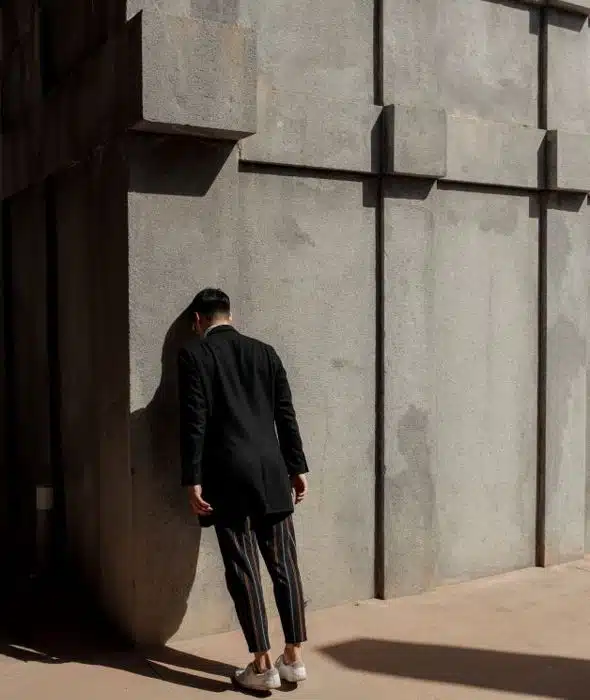One of the biggest obstacles to accumulating wealth is what I call ‘Lifestyle Creep’. Lifestyle creep is your spending increasing along with your income and it can delay retirement, financial stability, and financial independence. At its worst, lifestyle creep can drive families into large amounts of debt that they will spend decades climbing out of. Others have referred to it as lifestyle drift or lifestyle inflation.
The way I see it, lifestyle creep comes down to two things:
- Keeping up with the Joneses
- The more you make, the more you spend
Most of us have been guilty of both of these at some point in our lives, but if financial security is a priority, then we can’t let either of them get out of hand.
Keeping Up With the Joneses
I believe keeping up with the Joneses happens more often than we think it does. Does anyone ever get a little bit depressed when they log on to Facebook and see all of the vacations that your friends are taking? I know that it has happened to me before. Then I start thinking about everyone vacationing and think that I should be able to as well!
What about a young doctor pulling into the doctor’s parking lot in his Beamer 3-series, surround by 5 and 7 series? Or even a colleague that graduated the same year as you buying a new house and joining the local boat club? The keeping up with the Joneses mantra can control our lives if we let it.
The More You Make the More You Spend
I heard this saying in my first month out of college. A couple of colleagues claimed that the more money they made, the more money they spent. I learned really quickly that as my income increased and I had more money going into my bank account, it was easier for me to spend money.
- I’m making more money = I can buy a nicer car
- I’m making more money = I can buy a bigger house
- I’m making more money = I can take more vacations
There is some truth to the statements above, but a 5% increase in income should not equal a 5% increase in spending. If your values don’t involve spending as much as you can, then this should never be the case.
How do I avoid lifestyle creep?
One way that has worked for me is to delay buying decisions. Instead of making an impulse decision, delay it for a couple of days or even a week. The delay will give you time to consider if you really need the purchase and if it will enhance your life, or if you really just “want it.” More often than not, I have found that the item wasn’t really something that I needed or that would enhance my life, but rather something I really just wanted. I have found this to work well with small items as well, even as small as $10-$20.
Probably the best way to avoid lifestyle creep is to set a budget and STICK TO IT! This brings us back to the nasty B word, which tends to be the solution to many financial issues. A budget can be done many different ways.
- Set a monthly spending limit – This is my favorite way to budget. Add up your monthly household expenses and add 5-10% more for a buffer. If you determine that amount to be $5,000, then any income above $5,000 needs to be deposited into a separate bank account. This method requires a commitment of sticking to your budget and considering the separate account off limits. It also gives you some flexibility if you go over budget in a category, then you can attempt to spend less on other categories that month.
- Set a spending limit for each category – This is the most detailed and possibly the best way, but also may be the hardest and most time consuming. This type of budget will give you a set limit for each category every month.
- Dave Ramsey advocates the envelope system – Put money in an envelope for the purchases that you want to make. If you don’t have enough money in the envelope then you can’t purchase the item.
If you set a budget of $5,000 a month it doesn’t have to stay there forever. I recommend updating your budget annually. Inflation will require more money every year for the same amount of goods, however, we should have a goal of trying to keep our budget increase below our wage increase. So if your wages go up 8% in a year, but you only increase your budget by 2%, you are now saving an extra 6%. Now you have 6% that can go toward retirement, debt payoff, a future home purchase, or college for your kids.
What about the Joneses?
This can be tough, but for me it comes down to two things –
- a values issue
- focus on goals
No matter how much money I make, or how many toys I have, there is always going to be someone with nicer and bigger toys. It is up to me to keep my values in mind when I am spending money. Here is an example – will buying a nicer possession increase the time I get to spend with my family? Occasionally the answer is yes, but more times than not the answer is no. If spending money doesn’t coincide with your values then it is a bad purchase.
Focusing on your goals instead of what someone else is doing may help as well. My goal of saving money and becoming financially independent by a specific age is more important than the house or car I am driving at this point in my life. Knowing that I have goals to attain, and that I can reach those goals if I stick to my plan helps me when I see the Joneses next new possession.
Lifestyle creep is one huge obstacle that in our way of financial independence, but it is something that we can overcome by making small decisions every day. Being content with what we have, setting a budget, and not worrying about everyone else can pay huge dividends for our personal and financial well being.
Brad Bobb, CFP® is the owner of Bobb Financial Inc, and an expert in retirement planning for federal employees.

